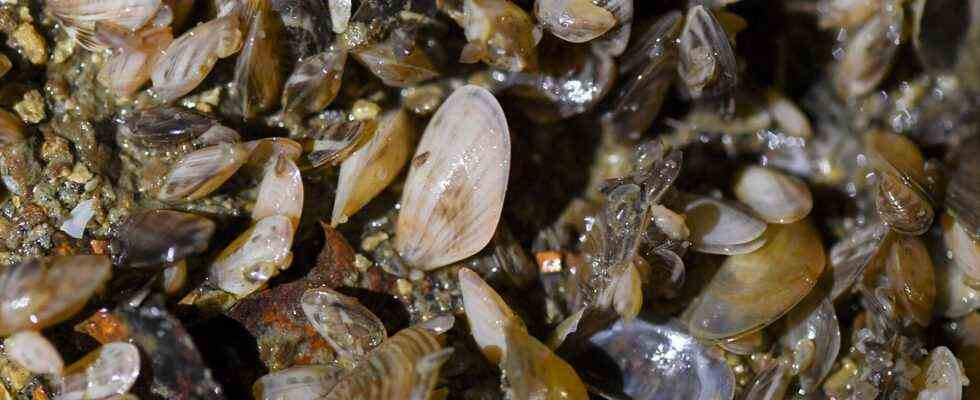Status: 02.12.2021 10:25 a.m.
It was once at home on the Black Sea. The quagga mussel is now conquering German waters from Lake Constance to the north. This can be a problem for local mussels.
The invasive quagga mussel has spread rapidly in Germany in recent years. The mollusc, which belongs to the triangular mussel family, originally came from the mouth of the Black Sea and was probably brought in by ship.
According to the Federal Environment Agency, the quagga mussel can now be found in almost all German waters from Lake Constance to the north. “The mussels occur wherever there is shipping,” explains Franz Schöll from the Federal Institute for Hydrology.
Problem for native mussels
For the local mussels, however, triangular mussels can be a problem. In some cases it even displaces its relative, the zebra mussel (Dreissena polymorpha), which also belongs to the three-sided mussels. This was originally at home in Central Europe and was pushed back in the last Ice Age, but has been spreading again via shipping for several decades.
“In general, the quagga mussel seems to be more competitive, as its occurrence is usually associated with a decline in the zebra mussel,” says Andreas Dobler from the Coordination Office for Mussel Protection at the Technical University of Munich. An example of this is the Main-Danube Canal, in which it has been the most common type of mussel since 2008, which until then was the zebra mussel.
According to Dobler, the spread of the triangular mussels can hardly be stopped because the larvae could attach themselves to hard surfaces. A sports boat is enough to be towed from one body of water to the next to bring in the mussel.
The water level is artificially lowered
The phenomenon is also evident at Rothsee south of Nuremberg. The quagga mussels are already spreading so strongly on the lake floor that other mussels are being deprived of their habitat, says Manuel Philipp from the Nuremberg Water Management Office.
That is why the office became active. Every year it lowers the water level of the lake to six meters over several weeks. The invasive mussels come into the air and die. Volunteers have been collecting thousands of native mussels for weeks in order to bring them deeper into the lake and into the saving water. Otherwise they would die in the winter temperatures.
Spread also on Lake Constance
The quagga mussel has also been spreading in Lake Constance since 2016 – and at a rapid pace. Three years after the first find, it had already conquered the entire Lake Constance, as Dominic Hahn from BUND Baden-Württemberg says.
He views the spread of the triangular mussels with some concern. These could make the endangered domestic large mussels in dispute for food. In addition, the larvae could invade water supply systems, block pumps and cause serious technical problems.
But there are also positive effects: “The number of wintering waterfowl has increased on Lake Constance,” explains Hahn. Tufted duck, pochard and coot in particular like to help themselves at the mussel banks.

